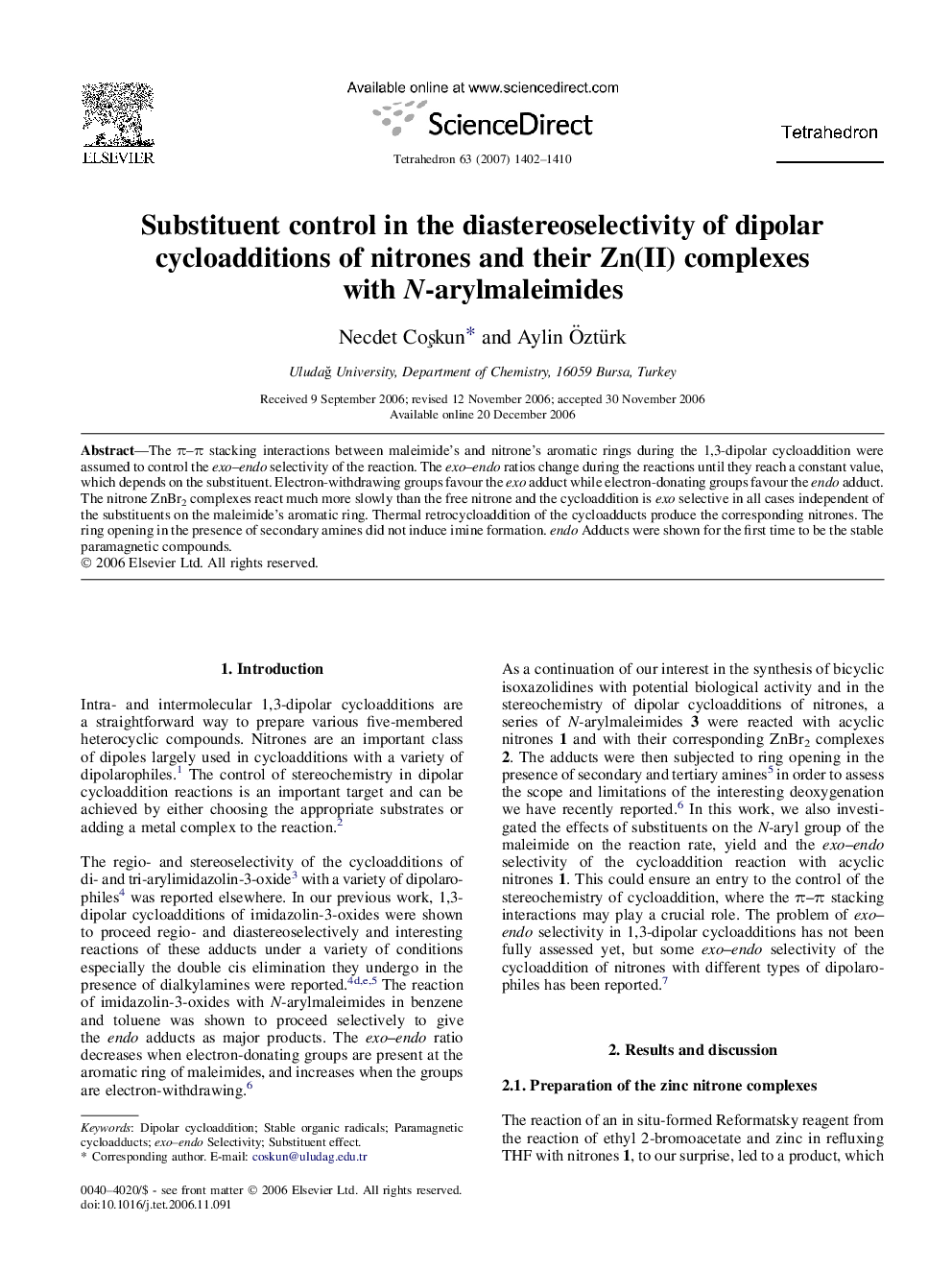| Article ID | Journal | Published Year | Pages | File Type |
|---|---|---|---|---|
| 5228975 | Tetrahedron | 2007 | 9 Pages |
The Ï-Ï stacking interactions between maleimide's and nitrone's aromatic rings during the 1,3-dipolar cycloaddition were assumed to control the exo-endo selectivity of the reaction. The exo-endo ratios change during the reactions until they reach a constant value, which depends on the substituent. Electron-withdrawing groups favour the exo adduct while electron-donating groups favour the endo adduct. The nitrone ZnBr2 complexes react much more slowly than the free nitrone and the cycloaddition is exo selective in all cases independent of the substituents on the maleimide's aromatic ring. Thermal retrocycloaddition of the cycloadducts produce the corresponding nitrones. The ring opening in the presence of secondary amines did not induce imine formation. endo Adducts were shown for the first time to be the stable paramagnetic compounds.
Graphical abstractDownload full-size image
